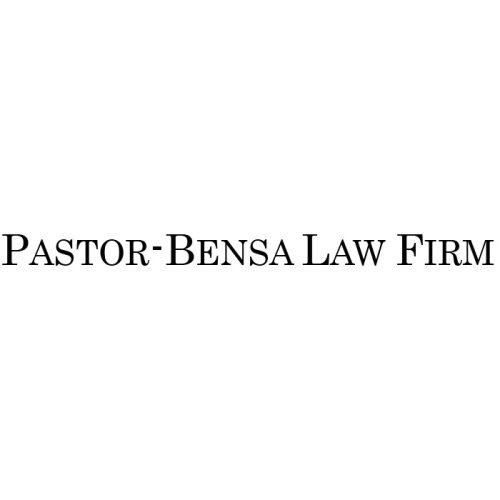Best Constitutional Law Lawyers in Monaco
Share your needs with us, get contacted by law firms.
Free. Takes 2 min.
Or refine your search by selecting a city:
List of the best lawyers in Monaco
About Constitutional Law in Monaco
Constitutional Law in Monaco is primarily centered around the principles enshrined in the Constitution of Monaco, which was adopted in 1962 and amended several times since. The Constitution outlines the sovereignty of the Principality, the powers and functions of the governing bodies, and the rights and responsibilities of its citizens. An essential aspect of it is the role of the constitutional monarchy, represented by the Prince of Monaco, and the checks and balances between the executive, legislative, and judicial branches of government
Why You May Need a Lawyer
Engaging a lawyer who specializes in Constitutional Law may be necessary for various reasons. Common situations include disputes involving interpretation of constitutional provisions, cases related to the infringement of fundamental rights, challenges to legislation or government actions that are perceived as unconstitutional, and matters concerning the division of powers between Monaco's institutions. Additionally, lawyers can offer guidance on constitutional reforms and assist in legal processes that impact public administration or individual freedoms.
Local Laws Overview
Monaco's legal system is heavily influenced by French law, yet it retains its unique legal features. Key constitutional provisions cover the structure of the government, the role of the Prince, and the functioning of the National Council. The Constitution guarantees specific civil liberties, such as freedom of speech, assembly, and religion, while emphasizing their protection under the law. Legal actions concerning constitutional matters often require an understanding of both the local nuances and broader European legal principles.
Frequently Asked Questions
What is the role of the Prince in Monaco's constitutional system?
The Prince is the head of state and represents the Principality of Monaco. He holds significant executive powers, including the appointment of the Minister of State, but his powers are balanced by other government branches and constitutional provisions.
How does the judicial system in Monaco handle constitutional issues?
Constitutional issues in Monaco are addressed by the Supreme Court, the highest judicial authority, which has the power to interpret constitutional provisions and address violations.
Can citizens challenge government actions as unconstitutional?
Yes, citizens can bring forward cases claiming that government actions contradict constitutional laws. These are typically reviewed by the Supreme Court.
What are the main fundamental rights protected by Monaco's Constitution?
The Constitution ensures several fundamental rights, including but not limited to freedom of speech, freedom of assembly, property rights, and equality before the law.
Is the Constitution of Monaco influenced by international laws?
While Monaco maintains its constitutional independence, it is influenced by international legal frameworks and treaties, especially those related to human rights as determined by European institutions.
How often is the Constitution of Monaco amended?
The Constitution has been amended a few times to adapt to modern standards and societal changes. Amendments require thorough deliberation within the national government.
What obligations do residents of Monaco have under the Constitution?
Residents must adhere to the laws derived from the Constitution, respect the rights of others, and contribute to the maintenance of public order and the general welfare of the state.
Are there any restrictions on the rights guaranteed by the Constitution?
Yes, certain restrictions are in place for public order, national security, and ethical reasons, but these are usually regulated and defined clearly by law.
What is the process for constitutional reform in Monaco?
Constitutional reforms typically involve consultation between the Prince and the National Council to address or modify articles within the Constitution, followed by a formal amendment process.
How can I learn more about ongoing constitutional debates or changes in Monaco?
Keeping abreast of official government publications, attending National Council sessions, and consulting with legal professionals specializing in Constitutional Law can provide insights into ongoing debates and reforms.
Additional Resources
Several resources are available for individuals seeking further understanding or legal assistance in Constitutional Law in Monaco. The Supreme Court of Monaco provides insights into constitutional jurisprudence. The Ministry of State and the National Council publish information about legislation and government decisions. Additionally, local law firms and constitutional law scholars offer valuable guidance and services. The Monegasque Bar Association can also provide recommendations for legal experts in this field.
Next Steps
If you require legal assistance in Constitutional Law, consider scheduling a consultation with a qualified lawyer who specializes in this area. Start by gathering all pertinent information related to your issue and identifying your objectives. Research and reach out to reputable law firms or seek recommendations for lawyers with a strong background in constitutional matters. Preparing a list of questions and concerns to discuss during your initial consultation will help you make informed decisions about your legal strategy and future actions.
Lawzana helps you find the best lawyers and law firms in Monaco through a curated and pre-screened list of qualified legal professionals. Our platform offers rankings and detailed profiles of attorneys and law firms, allowing you to compare based on practice areas, including Constitutional Law, experience, and client feedback.
Each profile includes a description of the firm's areas of practice, client reviews, team members and partners, year of establishment, spoken languages, office locations, contact information, social media presence, and any published articles or resources. Most firms on our platform speak English and are experienced in both local and international legal matters.
Get a quote from top-rated law firms in Monaco — quickly, securely, and without unnecessary hassle.
Disclaimer:
The information provided on this page is for general informational purposes only and does not constitute legal advice. While we strive to ensure the accuracy and relevance of the content, legal information may change over time, and interpretations of the law can vary. You should always consult with a qualified legal professional for advice specific to your situation.
We disclaim all liability for actions taken or not taken based on the content of this page. If you believe any information is incorrect or outdated, please contact us, and we will review and update it where appropriate.
Browse constitutional law law firms by city in Monaco
Refine your search by selecting a city.











